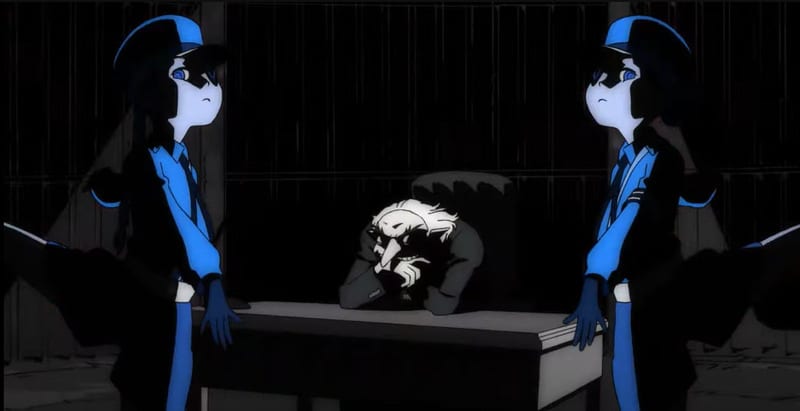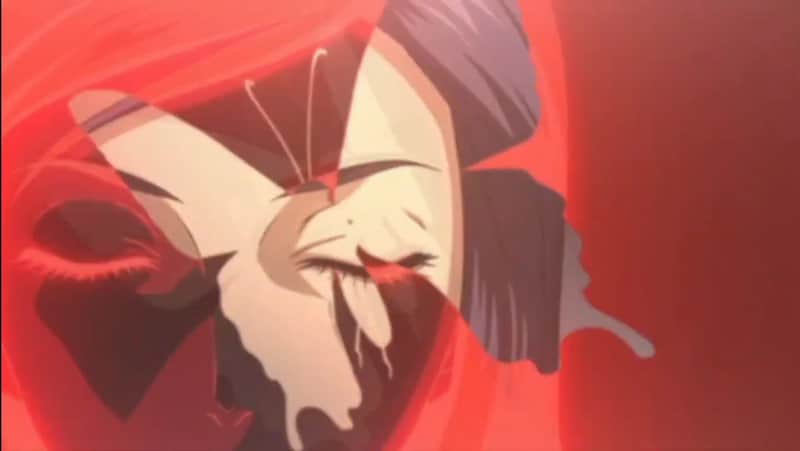Fans of the Persona series often sort the games into two groups: The Classic Trilogy, which consists of Persona, Persona 2: Innocent Sin, and Persona 2: Eternal Punish, and the Modern Trilogy, which consists of Persona 3, Persona 4, and Persona 5. While the former group lacks the social and calendar systems that the series became known for, the influence of those first three games on the latter three often goes overlooked. In some ways, Persona 5 took more inspiration from the Persona 2 duology than it did its immediate predecessors.
A World’s Fate Decided by a Game

Here are some endgame spoilers right off the bat: Both Persona 2 games and Persona 5 center their stories around a game between gods. In Persona 2: Innocent Sin, the entity Philemon, who represents humanity’s hope, makes a bet with Nyarlathotep, the shadow of humanity that represents the qualities they refuse to acknowledge. Similarly, Persona 5 has Igor, Philemon’s servant, make a bet with Yaldabaoth, a creature brought about by humanity’s desire to be controlled. In both cases, the contest in question is whether humans can overcome their inability to think for themselves to create a better future.
While each game centers around a comparatively small group of characters, the scale of the conflict involves an entire city’s population. In both cases, we see a society that struggles with the concept of individual thought, resulting in disastrous consequences. Innocent Sin and Eternal Punishment see baseless rumors become reality purely because so many people bought into them, while Persona 5 shows people discarding their support for social reform the moment it becomes bothersome for them.
Persona 2 and Persona 5 both heavily emphasize Carl Jung’s process of individuation as a central theme. Innocent Sin depicts a world that crumbles to nothing because the game’s party fails to react to the problem around them before it is too late. Eternal Punishment’s parallel universe has its proactive characters save their world by staying ahead of the misinformation plaguing society. Persona 5 takes both games’ concepts and makes them into one- The world is nearly destroyed because of the common person’s negligence, but through the party’s desires for individuality, the common perspective becomes proactive.
Propaganda, Misinformation, and Fascism
If the heroes of these games are framed as trying (regardless of success) to stand up to authoritarian lies to battle society’s injustices, it stands to reason the villains would be authoritarians who propagate misinformation for their own gain. Masayoshi Shido, a man running for Prime Minister in Persona 5, is unabashedly evil yet wins overwhelming support by spreading meaningless catchphrases to manipulate the masses. In Persona 2: Innocent Sin, Nyarlathotep takes on the human form of Adolf Hitler after he is revived through a conspiracy theory becoming real. While we do not get to see Hitler’s campaign strategies in Innocent Sin, his real-world propaganda tactics are identical to Shido’s.
In short, both Shido and Hitler represent the same concept: Fascism. Persona blames these vile dictators for manipulating people but also suggests that people have a responsibility to stop them before they rise to power. Persona 5’s Phantom Thieves manages to stop Shido, but only after he has manipulated the entirety of Japan into blindly believing in him. Persona suggests that those who value intellectuality must stand against the mold and stop it before they can obtain the power to abuse it.
Yaldabaoth is ultimately no different than Shido and is equally a representation of a Fascist ideology. He believes that as long as he can justifiably have the title of god (regardless of how much he cheats to obtain it), he has the right to control the lives of all humans. As long as humans desire to not have to think for themselves, Yaldabaoth thrives. This cyclical logic is nonsense, but it’s no different than the logic Shido was using to control his country, or how Fascism functions in the real world. It makes sense that Nyarlathotep, who wishes to see humanity destroy themselves, would take on the guise of a man whose ideology also aligns.
Persona 2’s Influence
It’s easy to look at surface-level details of the Modern Persona games and assume that they are very different from those that came before. However, Persona 2 did a lot to influence them, and it feels far closer than one would expect. Its political messaging and philosophy of individuality’s importance make it an especially comparable duology to Persona 5. Both Persona 5 and Persona 2 want to tell the player to avoid mob mentality and think for themselves, and act as a warning of what happens to a society that doesn’t.
For More Great Content
Are you desiring top-tier content that covers everything? From thrilling sports and intoxicating entertainment news to gaming tips and professional betting advice, Total Apex covers it all. Delve into our no-fluff articles to stay ahead of the game with the latest sports action, uncover the hottest trends in entertainment, and get the latest scoops in the gaming industry that will take your experiences to the next level.
Finally, our betting advice will give you a decisive edge over the competition and increase your odds of beating the books. Whether you’re looking to stay updated or gain a competitive edge, Total Apex is your one-stop shop for all things compelling and relevant. Don’t forget we cover Fantasy Sports, too! Check out all our sites: Total Apex Sports, Total Apex Fantasy Sports, Total Apex Entertainment, Total Apex Sports Bets, and Total Apex Gaming. Out of the ashes of obscurity will rise a beast. Always remember to Respect The Hustle! Follow us on Twitter/X @TotalApexSports to stay informed.


